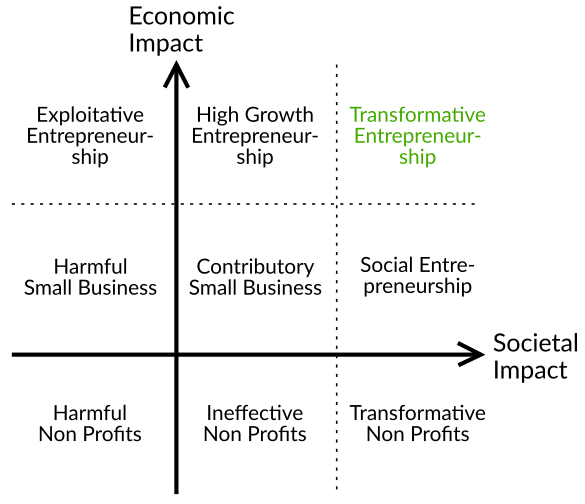
A few weeks ago I happened to attend a workshop on transformative entrepreneurship. During the summer I had started to volunteer for the Helsinki-based not-for-profit organization The Shortcut. The Shortcut supports tech startups by bringing people with different backgrounds together. They organize a multitude of events and trainings, for example an annual series of workshops, called School of Startups.
I was helping with the registrations during the School of Startups and whenever there was nothing else to do, I could participate in the sessions. This is how I found myself in this particular workshop about transformative entrepreneurship, which was really quite interesting and philosophical. The speaker was Sampsa Fabritius, CEO and founder of Kieku (an artificial intelligence powered podcast radio), and he started by asking us how we define success.
How to define success?
Being a scientist, I naturally came up with the most general definition, i.e. success is the achievement of measurable goals. But then the other participants started sharing their answers and I realized that the question was more about doing some soul-searching and figuring out, what is important to you personally.
If you google: “How to define success?”, you will find lots of articles that tell you, it’s not just about the money you make. Success is about happiness and the feeling of fulfillment you have. Of course, that’s easy to say, when you’re Bill Gates or Richard Branson. But seriously, in order to define happiness and make it a measurable quantity, you have to evaluate how what you do aligns with your values. And therefore, you need to be clear about your values first.
My values
So, I did some soul-searching and came up with 3 categories that encompass all the things that are important to me. I will call them personal level, social level and societal level. On the personal level, I value freedom of decision-making and possibility for growth. Those apply to my personal and professional life. My desire for freedom doesn’t mean that I can’t work in a team or for a boss. It means that I work best in a setting, where I’m trusted to solve the assigned task in my own way. And for the growth, I love to be challenged and learn new things (as I already explained in a previous blog post). Hence, I love varied tasks and project work and meeting new people.
The social level includes all the people in your life, your friends and family, colleagues, neighbors, and so on. On this level, I value an atmosphere of openness and trust. Every member of a family or team should feel confident to share their ideas or address an issue. I believe that most problems simply result from misunderstanding and failure to communicate one’s expectations. But good communication is not the only aspect, people have to feel a part of the community as well. This is why I like to get involved with community building activities, such as student organizations or The Shortcut. I like to bring people together in events, so they can feel included and become friends.
Societal impact
Lastly, on the societal level I care about health, the environment and equality. I’d love to work for a company that commits to improving people’s lives with a product that is produced sustainably. The company should make an effort to treat all its employees and customers in a fair way and ensure their access to the product (which is especially important in the healthcare sector). The (positive) societal impact of a business is also the distinguishing feature of transformative entrepreneurship. The socioeconomic map ranks business models according to their economic and societal impact:

A transformative business is not just tackling a societal challenge or driving society as a whole forward, it is also generating wealth in order to sustain its future operations. The key point here is to be transparent about what you do, how the customer benefits from it and how you gain revenue from it. I like the idea of a shift towards “conscious capitalism“. Businesses could do both, realizing their societal responsibility and having financial success with it. I hope that Sampsa was right in his workshop, when he said:
In future, mental models will be driving business models.
To come back to my definition of success, it plays quite a big role for my own happiness and fulfillment to do something worthwhile. Therefore, the concept of transformative businesses resonates well with me. It means working towards a positive change in society, while using responsible tools and creating value for the stakeholders. What do you think? Have you heard of transformative entrepreneurship before? Do you think the time is ripe for such businesses, yet? Where would you place most existing companies on the socioeconomic map? I would love to hear your opinion on the topic. Let me know in the comments below!

First time I here from „transformative Entrepreneurship”. Interesting… I like the idea and I also think this is important to build trust. In Europe all American big-tech have the same trust problem and my personal guess is missing transparency is the reason. Most of them are trying to get more to the right hand side of the graph, but still are not successful doing that. We will see what future brings…
thanks for sharing.
Alex